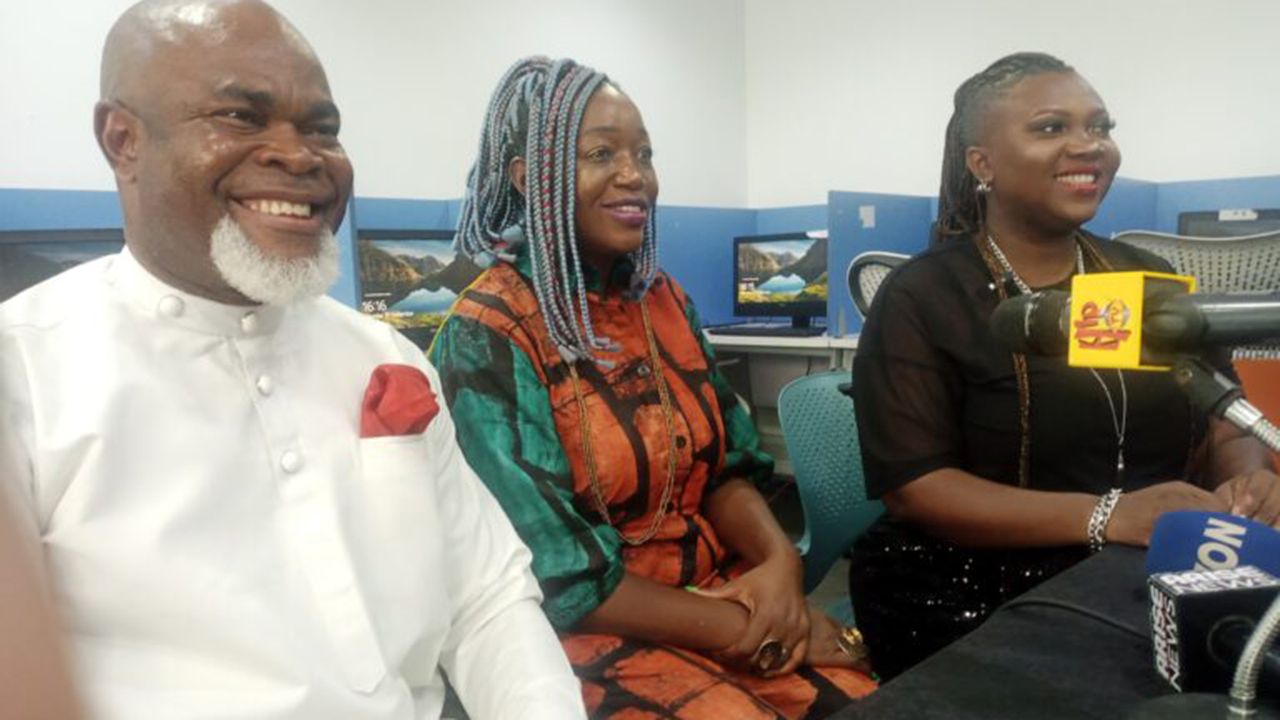
The British Council Nigeria has launched ‘Film Lab Africa’, an innovative accelerator programme designed to empower aspiring filmmakers and television producers, through capacity building initiatives, technical training, mentorship and workshops.
The programme is expected to provide an all-encompassing framework of support and avenues for growth, fostering enhanced skills, enriched knowledge, and expanded networks, enabling participants to showcase their creative productions effectively.
The programme, which started in September, will span three years, characterised by a multi-phase approach that delves into mobile phone cinematography, short film production, the intricate realm of film and TV industry entrepreneurship, script refinement, and invaluable opportunities for public presentation.
Participants will receive hybrid training sessions covering technical aspects, business skills, and mobile phone cinematography. These sessions will equip them with the necessary tools and knowledge to excel in their craft.
Every participant will also benefit from personalised mentorship, a catalyst for honing artistic expression and nurturing career progression, while script consultation services will be available to help participants refine their storytelling techniques and strengthen their narratives.
They will also have opportunity to pitch their project ideas during two-stage pitch sessions. These sessions will aid in selecting the most promising projects for further development and support.
Head of Arts, Nigeria and Regional Lead Creative Economy, Sub Saharan Africa, British Council, Brenda Fashugba, who briefed newsmen in Lagos shortly before the unveiling of the new programme last weekend, said participants would be taken through a 10-week long virtual training after which mentors would be appointed to help them shape the production of their short films.
She explained that at least 60 cohorts would make the training, adding there will be pitches where the best 20 cohorts would be selected at the end of the programme with each of the cohorts getting a grant of £5000 each, which translates to £100,000.
Fashugba also said the selection process would be through registration online with the provided sites.
“This marks the beginning of an exciting journey—one that holds the promise of not just shaping the future of the creative industry but also of fostering collaboration, innovation, and cultural enrichment.
“We are set to introduce the birth of a programme that will become a catalyst for change, a platform for creative expression, and a hub for forging lasting connections,” she said.
Fashugba added that the Film Lab Africa was not just a programme , but a testament to the British Council’s commitment toward nurturing talents, promoting cross-cultural collaboration through the creative economy.
“It reflects our belief in the transformative power of storytelling, and it is a resounding affirmation of our dedication to supporting the arts and creative industries.
“ Film Lab Africa will provide aspiring filmmakers and television producers with tools, knowledge, and resources needed to craft compelling narratives and make their mark on the global stage.
“Through comprehensive capacity-building initiatives, technical training, mentorship, and workshops, participants will embark on a journey of self-discovery and creative exploration.
“We will emphasise the art of mobile phone cinematography, delve into the intricacies of short film production, and navigate the complex terrain of film and television industry’s business.
“ In doing so, we will not only empower individuals but also contribute to the growth and sustainability of Nigeria’s creative economy,” she said.
According to her, the council envisions a future where Nigerian filmmakers and TV producers are celebrated on the global stage, where their voices resonate far and wide, and where their stories inspire change.
She called on other stakeholders to embrace the creative spirit that united all and also join hands in shaping a brighter, more vibrant future for Nigeria’s creative industry. She said filmmakers using indigenous languages would be very much considered.
She said, “We are very interested in indigenous language films, they do very well and they do very well internationally. We are also encouraging quite a lot of people to apply with indigenous language films and we are going to support them.
“After the classes, you need to say this is what I think I can do. They are going to pitch to their peers, they are going to pitch to a panel of industry stakeholders, they are going to pitch to us and we are going to judge based on the merit of those pitches. We hope we are going to get up to the number that we have but our hope is we are supporting up to 20.”
She stated that most importantly the participants would be equipped with the necessary tools to craft compelling narratives bolstering the creative economy while fostering a new era of storytelling excellence.
Selected participants will have opportunity to produce short films with the guidance and resources provided by the programme. The programme will offer participants opportunities to premiere their films, participate in tours, secure distribution, and showcase their work at film festivals.
According to the council, selected participants of the ‘Film Lab Africa’ will receive production grants, and will be trained with the necessary tools to craft compelling narratives that will promote the Nigerian creative economy while fostering a new era of storytelling excellence.
Director of Programmes, British Council, Chikodi Onyemerela, said women and persons with disability as well as people in relatively marginalised communities were encouraged to apply.






